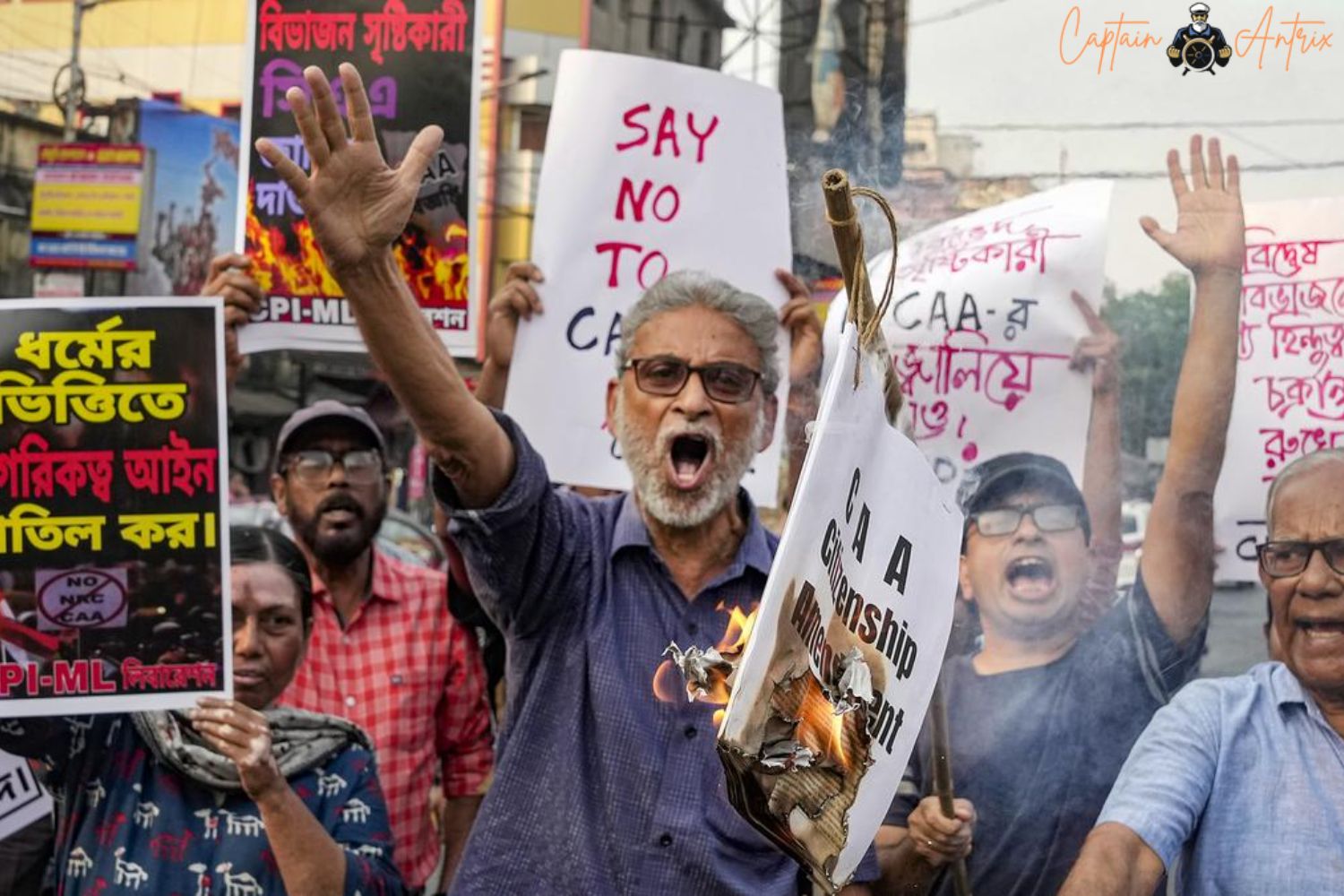
The Citizenship Amendment Act (CAA), which came into force in March this year, has ignited widespread debate across India and beyond. This law amends India's Citizenship Act of 1955, creating a pathway to citizenship for immigrants from three specific countries—Afghanistan, Bangladesh, and Pakistan. However, it applies only to followers of six religions, explicitly excluding Muslims. This exclusion has sparked concerns about whether the Act aligns with the secular and inclusive values embedded in India's Constitution.
What Does the CAA Really
Do?
Under the CAA, immigrants from six religious communities in the specified countries can seek Indian citizenship, a move the Indian government describes as a humanitarian gesture. They argue that the Act is designed to help those who have suffered religious persecution. However, the omission of Muslims from this list has led to allegations of discrimination, raising red flags about potential violations of constitutional provisions that guarantee equality and prohibit religious discrimination.
A detailed report from the Congressional Research Service (CRS)—a non-partisan research body serving the US Congress—reflects these concerns. While CRS reports are informational and not reflective of US congressional policy, they are influential in shaping legislative understanding. According to this report, the CAA's selective nature could undermine India's secular ethos.
The Defense from the Indian
Government
The Indian government staunchly defends the CAA as a purely humanitarian act, intended not to strip citizenship but to protect those in desperate situations. They contend that the law is an essential step in addressing the challenges faced by specific groups who have historically been marginalized and persecuted in their native countries. Criticism within India, according to the government, is often swayed by domestic political agendas and fails to recognize the humanitarian intent of the CAA.

Voices of Opposition
The CAA has not just faced criticism domestically; it has also alarmed international human rights groups and observers. Critics argue that the Act is part of a larger agenda by Prime Minister Narendra Modi's administration and his party, the BJP, which they claim is shifting India towards a Hindu majoritarian state. This, they fear, threatens the secular principles that have long defined the nation. The concerns are amplified by the proposed National Register of Citizens (NRC), which could potentially disenfranchise many among India's significant Muslim population.
International Reactions
The international response has varied, with several global leaders expressing concerns about the implications of the CAA for religious freedom in India. Discussions in the US Congress, for instance, have included resolutions condemning human rights violations and calling for the protection of religious freedom in India, indicating the level of international scrutiny the Act has attracted.
Looking Ahead
As the implementation of the CAA unfolds, it continues to be a polarizing issue. While supporters applaud it as a correction for historical injustices against persecuted minorities, opponents view it as a dangerous precedent that could harm India's democratic fabric and secular identity. The debate around the CAA is more than a legal argument; it's a profound dialogue about what it means to be Indian in today's world.
Tags:
Global News
